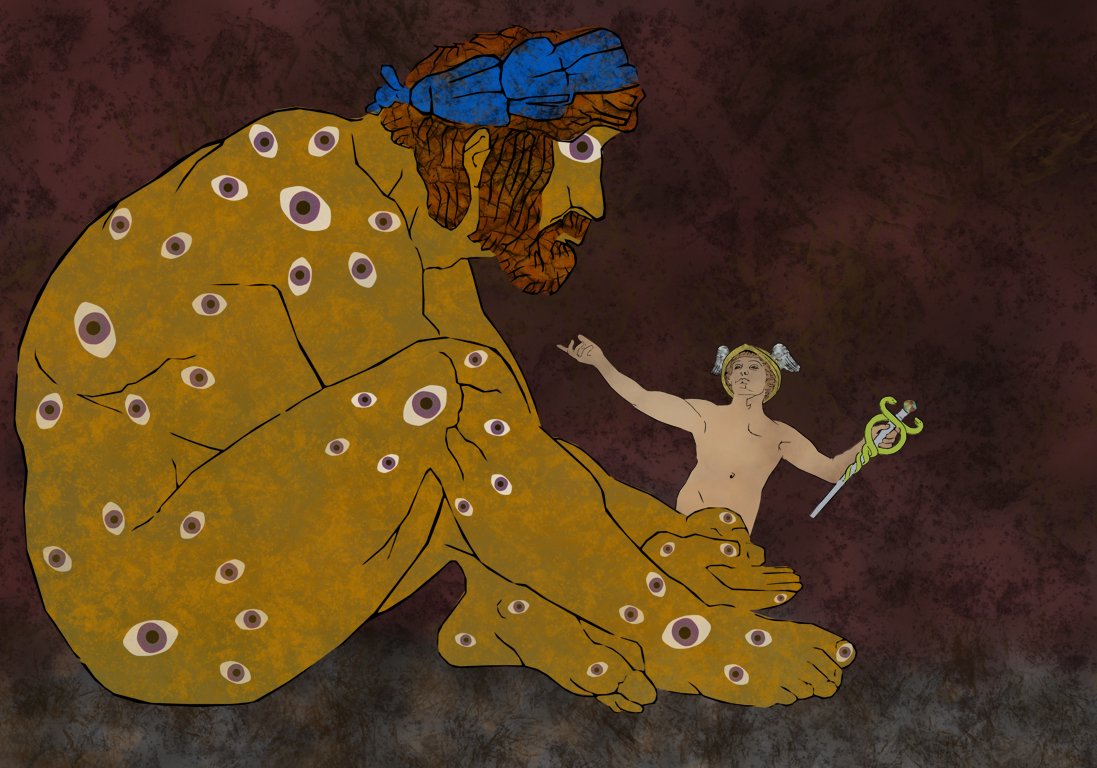
The Mythos
of Commerce
We are accustomed to treating commerce and business as if they are the same thing. Business and commerce are actually quite distinct, however. The difference between them is at the core of our struggles to craft a way of working that is profitable both financially and psychologically.
Business focuses on creating and maintaining a social organization that is successful at taking in more money than it spends. Commerce, on the other hand, is designed to provoke a deeper experience of exchange in which participants acknowledge the metaphorical relationships between things that may at first glance have little in common.
Business seeks shortcuts and automates its tasks whenever it can. Commerce lingers at the doorway and cherishes unnecessary sacrifices.
Commerce is a word that we use to refer to marketplace activities, but it also is a term for conversation, and for sex. There is much more to commerce than just making a profit.
For much of its history, commerce was a matter of mythology as well as money.
The birth of commerce can be traced back to ancient civilizations that considered trade to be a form of religion, with its own mythologies, and even its own gods.
In Ancient Greece, the ritual drama of economic activity was expressed in terms of the tension between two gods: Hermes and Hades. Both gods represented economic principles, but the two had opposing economic agendas.
We conceive of Hades primarily as the Greek god of the dead, but he was also the god of wealth. These two attributes seem incongruous at first. After all, we think of wealthy people as having the best things in life. In doing so, however, we fail to acknowledge the distinction between the power of having wealth and the pleasure of spending it. As the god of wealth, Hades desired to possess things and then never let things go. Hades was a hoarder, keeping his wealth underground like an unmined vein of gold, a corpse in a tomb, a seed in dry ground, without the opportunity to germinate.
Hades was a divine representation of the kind of economic motivation that drives cryptocurrency enthusiasts today. Resolving to keep their Bitcoin or Ethereum out of trade forever, they repeat the mantra HODL, which stands for “hold on for dear life”. Their cryptocurrency is dead money, money of the crypt. Kept out of circulation, cryptocurrency never moves, and so is no currency at all. Like blood prevented from moving through the veins, it congeals, transforming a liquid asset into a blockage.
Dead wealth & liquid assets
While Hades hoarded wealth, Hermes kept value flowing. Hermes was the god of exchange. It was he who helped buried seeds find their way through up into the light, for he was the god of crossing borders.
Hermes was full of tricks, and became the patron god of traders and thieves alike. Hermes refused to respect the property rights of those who amassed possessions in private hoards. It was therefore he who brought Persephone, the goddess of abundance, out of her imprisonment in the dark halls of Hades, lifting her back up into the land of the living.
Hermes was a god of shared abundance by preserving the healthy flow of value, keeping it free from those who would keep it in their clutches. Hermes was a master of fluid identity, following the idea that two dissimilar things might be exchanged as if they were equivalent in value. He was a guide who led others through experiences of trade and transformation.
The Romans called Hermes and Hades by other names which, in turn, gave rise to vocabulary that reflects the divinities’ divergent economic impulses, still active in business today. Hades was known in Rome as Pluto, from which we get the term plutocracy, meaning political rule by the wealthy. Hermes was given the name Etruscan name Mercury, from which we get the word commerce, a term as flexible as Mercury himself, referring not only to economic trade, but also to verbal conversation and sex. In Latin, the phrase “com merx” meant “with merchandise”. Merchandise, merchant, and market are other terms that are derived from the name of the god Mercury.
The mystical aspects of commerce are symbolized in the caduceus, a magical rod carried by Hermes. Two serpents twine their bodies around the rod, trading places back and forth until they reach the top of the rod, where two wings emerge, representing the ability to rise above the weight of physical possessions.
In this symbol, the central rod represents the strict boundary between binary opposites, such as dark and light, death and life, male and female, this and that. The serpents represent the ability to steal across this boundary, transcend binary opposition, and achieve transformation of identity. The undulating bodies of the snakes are another representation of fluidity, moving like water with waves of vitality pulsing through their bodies.
The places where the serpents intersect on the boundary rod represent places of exchange. They are a map of international trade, and of the relationship between merchant and customer.
The act of commercial trade is thus represented in the caduceus, not as a simple transaction of economical calculation, but as a ritual of the transformation of value. Through the rituals of commerce, a cow can become a coin, which can become a bottle of wine, which can become a coin again, which can become a day’s work, which can once again become a coin, which can become anything.
Commerce is an ancient cultural practice that is dedicated to a kind of prosperity that is more profound than what wealth can provide. It celebrates the willingness to let go of value with the understanding that an equivalent will come to take its place.
As such, commerce is an economical model that counters plutocratic capitalism without resorting to the inflexible centralized control of communism. Commerce is an economic philosophy that matches our zeitgeist with the wisdom of the ancients, showing us a shifting path of fluid identity, accepting impermanence in the confidence that we can always obtain what we need to live well in the moment.



